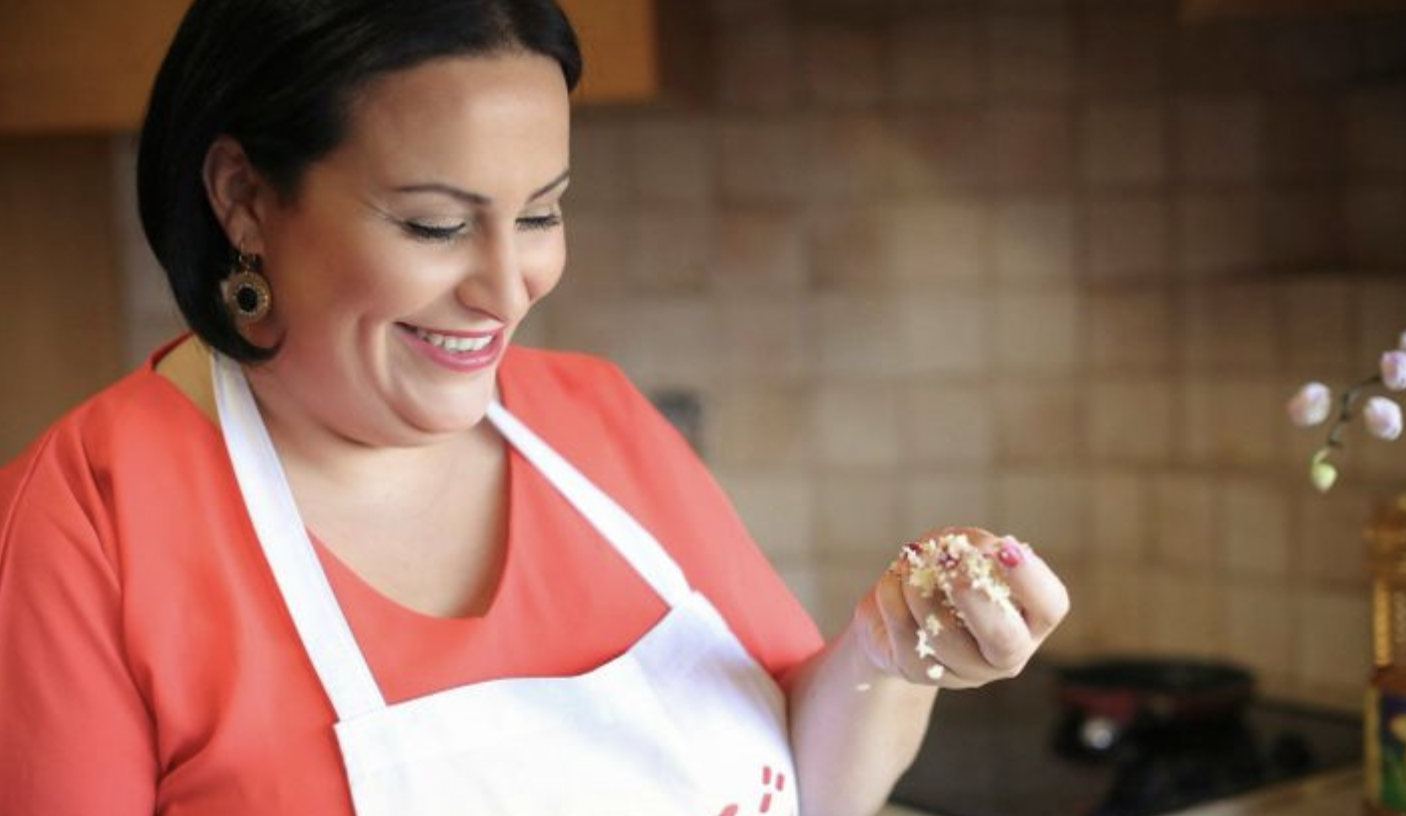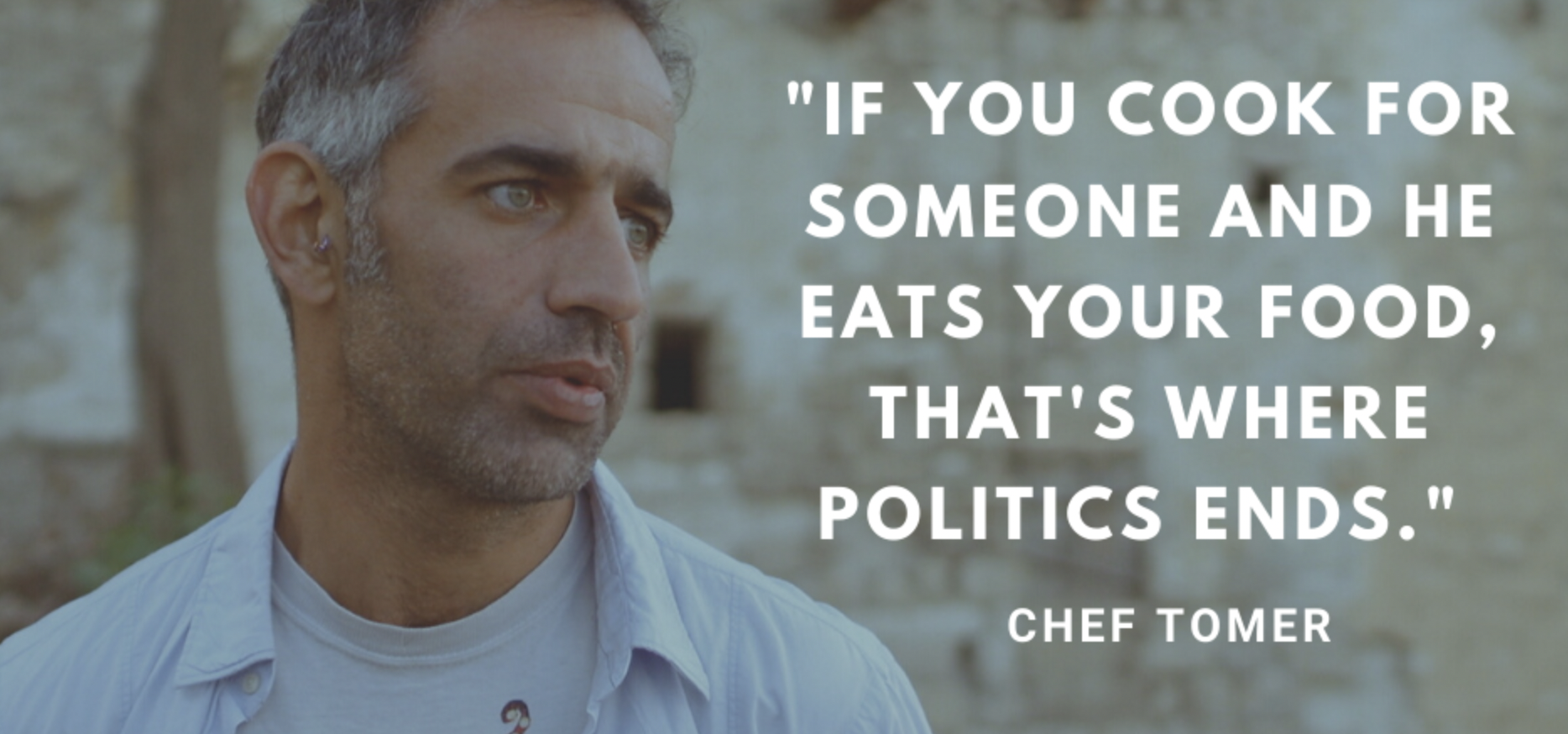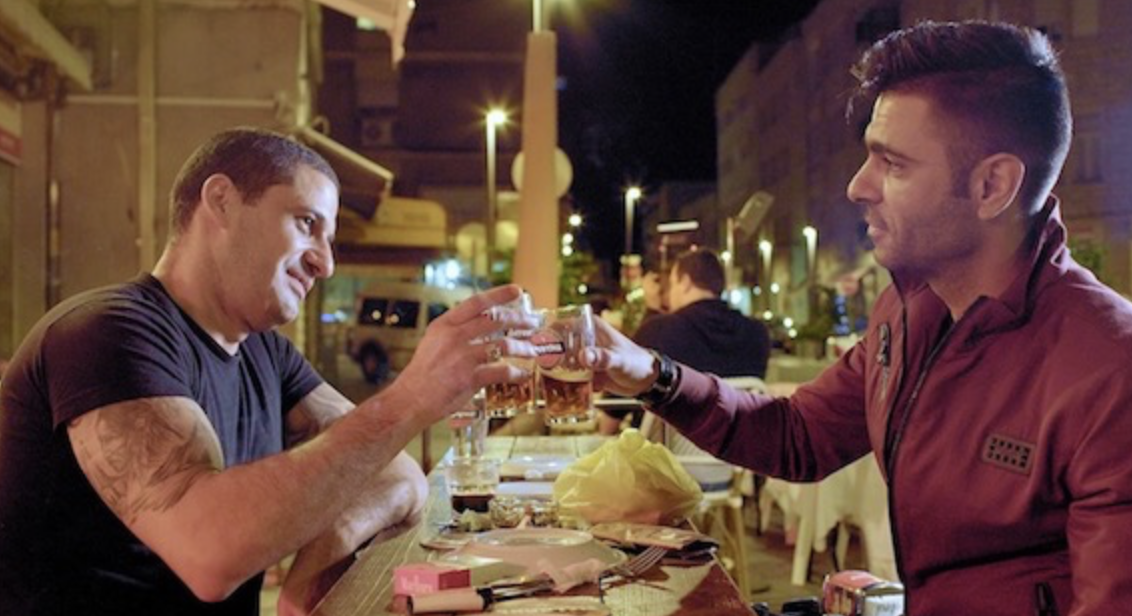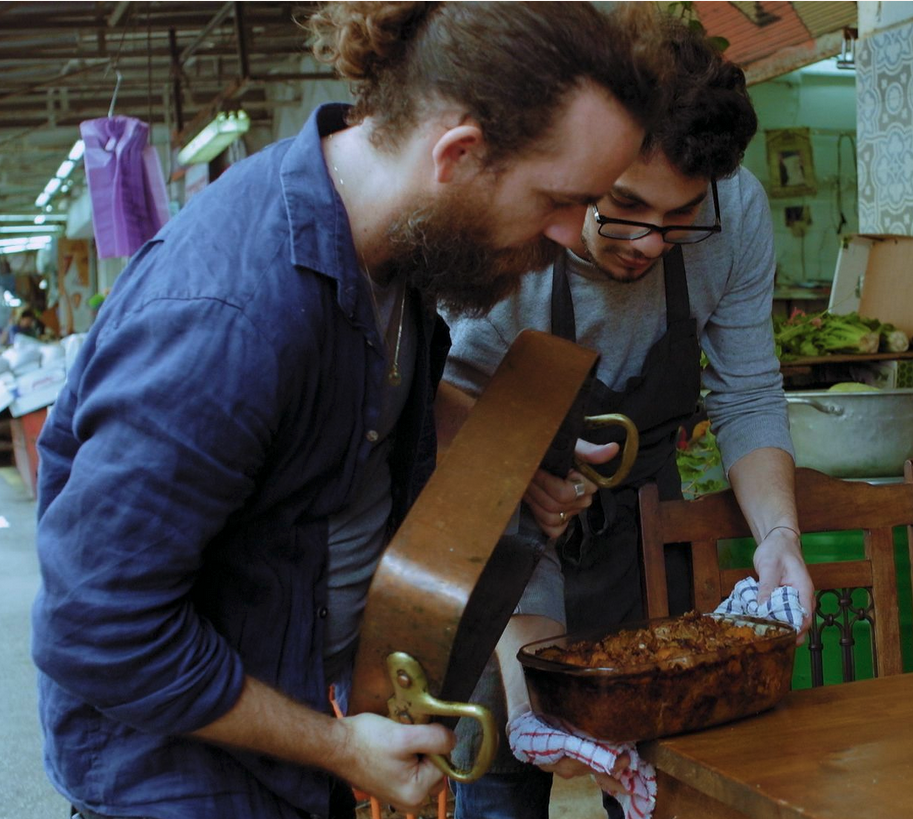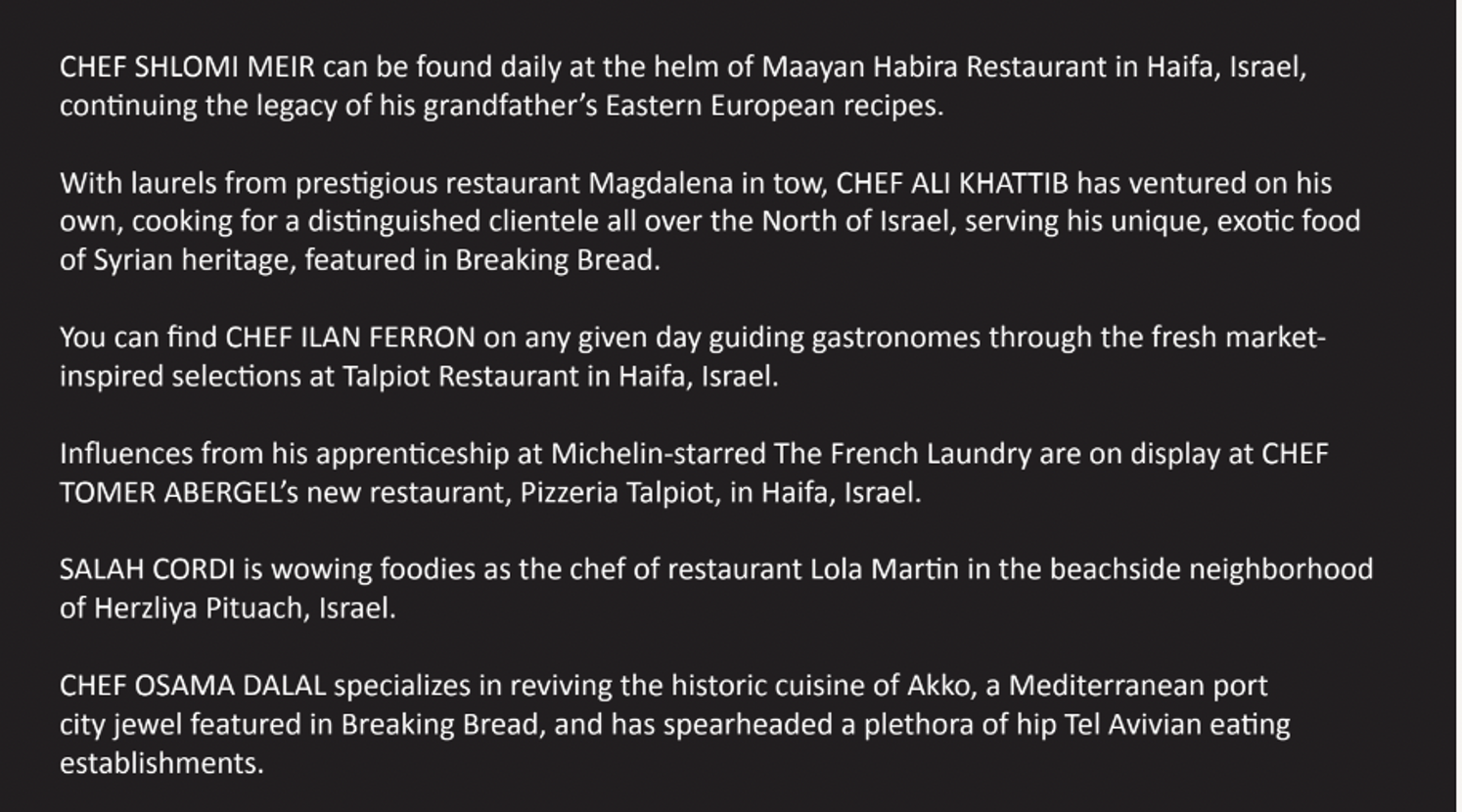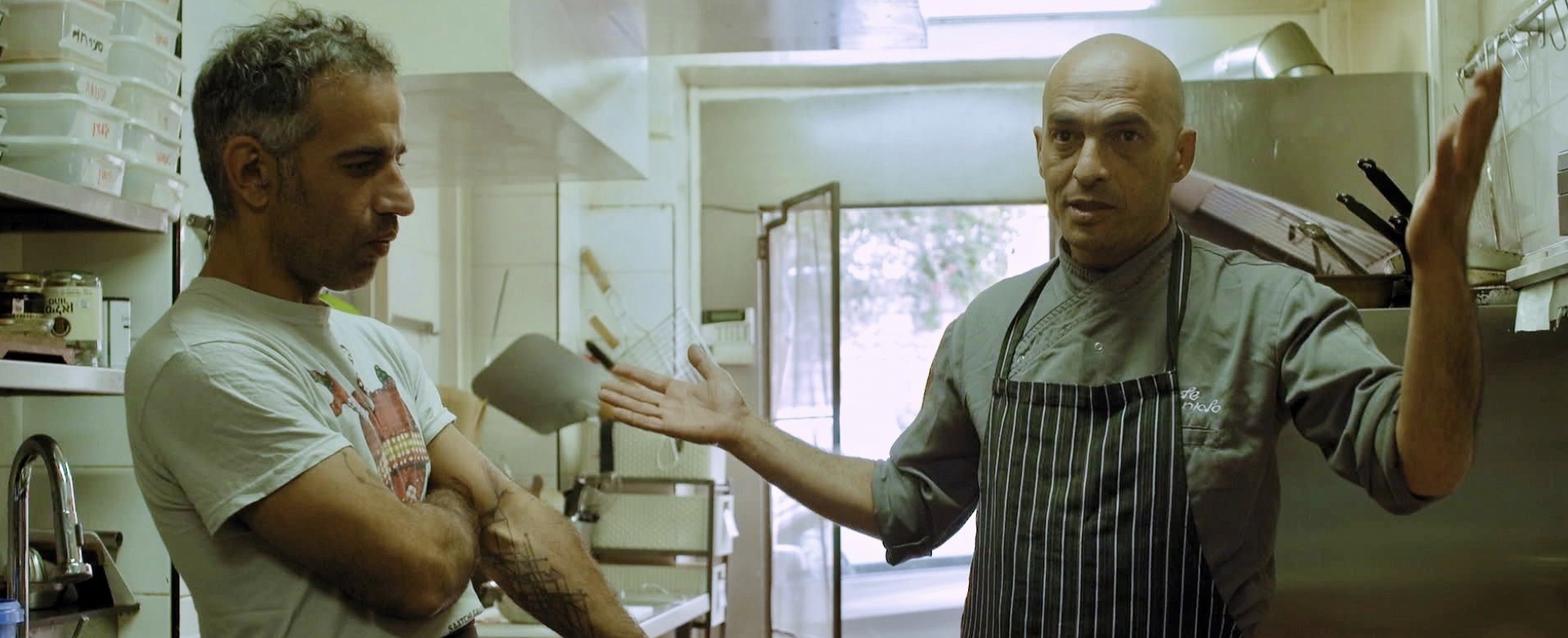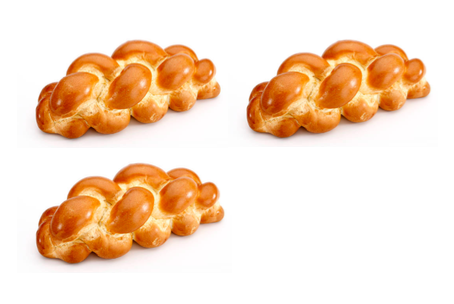The Universal Language of Food – Breaking Bread
By Sue Weston and Susie Rosenbluth – Two Sues on the Aisle
The Middle East may be divided by politics but it can be united the kitchen by food. This connection is the storyline for Breaking Bread, a documentary of the A-Sham food festival which pairs Jewish and Arab chefs to create culinary harmony. The chefs are challenged to reimage traditional Arab dishes, while at the same time building cross-cultural understanding. Cooking allows them to find inspiration in their differences. Breaking Bread strings together mouthwatering shots of food preparation, with a traveler’s-log showcasing the variety and splendor of the land, using interviews with participating chefs who share their stories. Culture, connection, and cooking.
A-Sham festival is just a beginning, creating personal connections and breaking bias in the kitchen. The festival goes a step further allowing diners to sample dishes created through Jewish-Arab collaboration. The movie introduces A-Sham to the world.
The A-Sham Festival
The vision for A-Sham came from the first Arab winner of Israel’s reality show “MasterChef”. Dr. Atamna-Ismaeel is a microbiologist from an Arab town in northern Israel. She had attended a Jewish school and discusses how her classmates reacted when she invited them to visit her Arab town. Over time their families even came to visit, one person at a time, she was able to bring change and build cultural acceptance. The world would be a better place if everyone was as open-minded and inclusive as Atamna-Ismaeel.
By creating the festival in December 2015, Atamna-Ismaeel began shifting public perception about Arab cooking, showing that it is more than hummus and falafel. A-Sham celebrates the food of the Levant region which includes Isreal and the surrounding Middle Eastern countries. Participating chefs create a new cuisine, by reimagining traditional Arab dishes. Breaking Bread positions the festival as a demonstration of culinary collaboration, cooperation, and harmony. It shows what is possible, at least in Haifa.
Haifa is a blended community, an area where cultures coexist, where Jews, Christians, Muslims, Druze, and people of the Baha’i faith live harmoniously. This open culture makes Haifa an ideal setting for the festival. The crazy mixed-up culture comes to light during the festival, which coincides with the celebration of Christmas, Ramadan, and Hanukkah, the sparkling lights underscore the magic.
The Film
Breaking Bread lets Atamna-Ismaeel share her perspective, a progressive and inclusive Israel, an environment where cross-cultural solidarity community becomes a reality. The film (shot in 2019) gives A-Sham a larger stage. Showing how chefs put aside their ideological differences to create culinary collaborations.
The interviews subtly discuss some barriers which prevent cultural unity. Living in isolated cultural circles, people develop bias, with unsubstantiated notions of perceived differences. Communication is an issue, while Atamna-Ismaeel speaks both Arabic and Hebrew, most of Israeli’s population does not. Petty grievances give rise to internal tensions, contesting the names of common Middle Eastern dishes, should it be Israeli Salad or Arab Salad? It makes sense that their shared roots should result in similar dishes, why should the names matter? But it does.
To attract diners, and encourage experimentation, Atamna-Ismaeel selected less-common traditional Arab dishes for the chefs to re-make, including kishek (Syrian yogurt soup) and qatayef (a dessert served during Ramadan). During A-Sham the chef-pairs recreate these dishes by adding from their diverse backgrounds.
The Chefs Featured in Breaking Bread
For the movie, Atamna-Ismaeel selected four pairs of Jewish-Arab chefs, who share her open-minded, inclusive view, showing the diversity of Israel. This makes A-Sham a microcosm, a sample, of what could be if Arabs and Jews put their differences aside, showing them working together creating novel culinary creations.
The underlying theme is harmony, despite differences.
Participants share their family history and their connection to the land. One contestant pair is Shlomi Meir, the grandson of a Holocaust survivor, and Ali Khattib who lives on the Israel-Lebanon border. Meir took over his grandfather’s Eastern European Ashkenazi-style restaurant, while Khattib’s restaurant serves traditional Syrian recipes (handed down from generation to generation). A second pair includes Ilan Ferron, born into a Moroccan family of mixed Catholic and Jewish heritage, and with a Muslim godfather. Ferron collaborates with Salah Cordi, a Jew from Jaffa. The third pair, Osama Dalal, who learned to cook from his Palestinian grandmother in Acre is paired with Tomer Abergel. Lastly, we heard from the husband-and-wife team, Shoshi and Fadi Karaman, he is Muslim, and she is Jewish.
The collaborators outdid themselves! Each team produces an extraordinary dish that mixes their heritages. We see them learning about each other, bonding, and having fun. But what would have made it more meaningful would be applying a broader lens, producing Arab dishes in a way that would be acceptable under kosher supervision and Halal. Instead of minting a modern Arab cuisine, we would have liked a cuisine that allows the cultures to mix without needing to have a label.
A Solution to Peace in The Middle East
While Atamna-Ismaeel’s vision begins with building individual relationships. She admits that building cross-cultural connections on a bigger level is slow. As friendships form, bias, and hatred fade. Breaking Bread suggests that some chef-pairs will establish friendships that extend beyond the festival. This will begin to advance change, but it needs to extend beyond a single event. A-Sham gives us hope, and yet, by design, it excludes many of the fractured cultures within Israel.
Why not continue to evolve this food festival to be all-inclusive? Middle Eastern cuisine should belong to the entire region, rather than changing the name, change perception, educate people that the chopped tomato and cucumber salad belongs to Arabs and Israelis alike, that hummus and falafel differ by region, and that the best dishes are still to be created, building on traditions, innovation through cross-cultural collaborations.
Beth Elise Hawk, wrote and directed Breaking Bread, a documentary that makes you stop and think. At first blush, it is an amazing show of solidarity and cultural acceptance in the Levant region. Knowing that individuals can coexist and form friendships in the kitchen is uplifting. More work is required to bring real and lasting change outside the kitchen.
Breaking Bread was released in 2020 and will be making its US theatrical debut on Friday, February 4 in New York (Quad Cinema & JCC Manhattan) and Los Angeles (Landmark Nuart).
***
Two Sues on the Aisle bases its ratings on how many challahs (1-5) it pays to buy (rather than make) in order to see the play, show, film, or exhibit being reviewed.
Breaking Bread received a 3 challah rating


